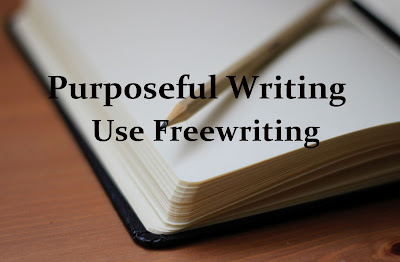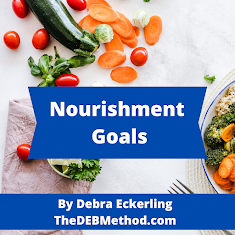Recommended Reading, Listening,
And Help from The Frugal Editor
By Carolyn Howard-Johnson
I am celebrating the release of the third edition of the second book in my HowToDoItFrugally Series of books for Writers with peek at the Appendics for visitors to Karen Cioffi’s #WritersontheMove blog. It’s a list of recommended reading for authors, some of them oldies but goodies, some new. It is a way to express gratitude and underscore my belief that reading one book on any how-to topic for the publishing industry is never enough because there is no more frugal way for a newbie to learn more about a new career. A great book with notes in the margins is much, much less expensive that classes from respected writers’ schools. And there is no better way than to learn more about publishing than from experts who have been there, done that, and care enough to have taken time from that trajectory to share with other authors.
In the Appendix of The Frugal Editor, you'll also find lists of the agents who contributed to the chapters on writing picture-perfect query letters, a short list of common errors, sample query letters, sample cover letters and even writing aids. Here are some recommended books, books I have read and found something new and important for my work in progress (WIP) or surviving the expectations of the traditional world of publishing. The editing process can be so much fun it become as addictive as chewing gum. Like chewing gum, there are some great benefits.
Editing
Lapsing Into a Coma: A Curmudgeon's Guide to the Many Things That Can Go Wrong in Print--And How to Avoid Them, by Bill Walsh.
Editors
Barbara McNichol, editor and writer, was introduced earlier in this book. Learn more about her at www.barbaramcnichol.com.
Dr. Bob Rich, an Aussie who can bring a worldwide sensibility for the English language to titles that would benefit from that expertise. Find him on Twitter @bobswriting.
Grammar and Style
AP Stylebook by Associated Press. This is the better of two major stylebooks for those who write for newspapers and other print and online media.
Bryson's Dictionary of Troublesome Words: A Writer's Guide to Getting It Right, by Bill Bryson.
Chicago Manual of Style by the University of Chicago Press Staff. It’s the go-to source for authors of books as opposed to online or print media.
Eats, Shoots & Leaves: The Zero Tolerance Approach to Punctuation, by Lynne Truss. For the author who doesn’t mind following strict grammar rules assiduously.
Far From the Madding Gerund, by Geoffrey K. Pullum et al. Those of you who are thinking what the heck is a gerund? are the ones who should be reading this.
Garner's Modern American Usage, by Bryan A. Garner, is complete and excellent for Americans. Choose the more formal style choices this book offers to avoid riling the ire of gatekeepers like agents and publishers.
Grammar Snobs Are Big Meanies: Guide to Language for Fun & Spite, by June Casagrande. Use this book when you want to argue with an editor, not when you want to impress one. A more formal tome for that purpose is The New Fowler's Modern English Usage (Fowler and Burchfield). It isn't nearly as entertaining, however. And authors (as compared to freelance writers) probably won’t learn as much from it.
The American Heritage Book of the English Language is available only in hardcover and is expensive, but you’ll find features in it you love.
Perrin and Smith Handbook of Current English has been around so long you might find it in a used bookstore. When you’ve read it, you’ll know the difference between temerity and timidity—or at least know to look them up. “Half knowing a word may be more dangerous than not knowing it at all” is the kind of truth you’ll find within its pages.
The Cambridge Grammar of the English Language. A classic.
The Elements of Style, Fourth Edition, by William Strunk Jr. , E. B. White, Roger Angell. Do not read this until you fully understand the difference between a style book and a book of grammar basics.
The Describer's Dictionary: A Treasury of Terms & Literary Quotation, by David Grambs. Keep this one forever and add your own notes when you visit museums and other places where you might encounter words you don’t know.
Craft of Writing
Writing Dialogue by Tom Chiarella is a must-read because poor dialogue technique is a glaring tip-off to editors and publishers that a manuscript is written by a beginner who has not taken the time to learn our craft. Mini review from me: This book has everything you’ll ever need to know about writing dialogue.
Writing for Emotional Impact: Advanced Dramatic Techniques to Attract, Engage, and Fascinate the Reader from Beginning to End, by Karl Iglesias. Authors of books can learn a lot from great screenplays.
Custom Dictionaries
Many professional organizations will share their print conventions with authors—from medical terms to lists of shady trees. Just ask.
You’ll find my recommendations for frugal learning for other aspects of publishing in all the books in my HowToDoItFrugally Series. Today we’re celebrating the release of The Frugal Editor’s third edition and, because blog posts must be more limited that books, it is only a taste of the resources you will find in it.) Nevertheless, a good place to start is to subscribe to this blog so you get their articles directly to your email box and when they arrive do a search using each contributors names. Most of them have at least one how-to book for you to consider.
~~
MORE ABOUT THE FRUGAL EDITOR
 |
| Carolyn and her husband Lance edit his how-to book for immigrants. |
That would be me, as well as the name of the book I am celebrating today. In its first edition The Frugal Editor (the book) was subtitled Put Your Best Foot Forward to Avoid Humiliation and Ensure Success. I wrote it because I needed a text for the class on editing I would soon be teaching for UCLA Extension’s Writers’ Program. At that time (2007), available books on editing didn’t cover what all writers needed including self-publishers. It turned out to be the winningest book in my series of books for writers.
I also write fiction and poetry and I think my favorite award for them was an honorable mention from Writer’s Digest for my first full book of poetry, ImperfectEchoes. I love #sharingwithwriters as a presenter and with visitors who frequent blogs like this one. So this bio comes with huge thanks to Karen Cioffi, owner of this Writers on the Move and many others who are celebrating with me.

















